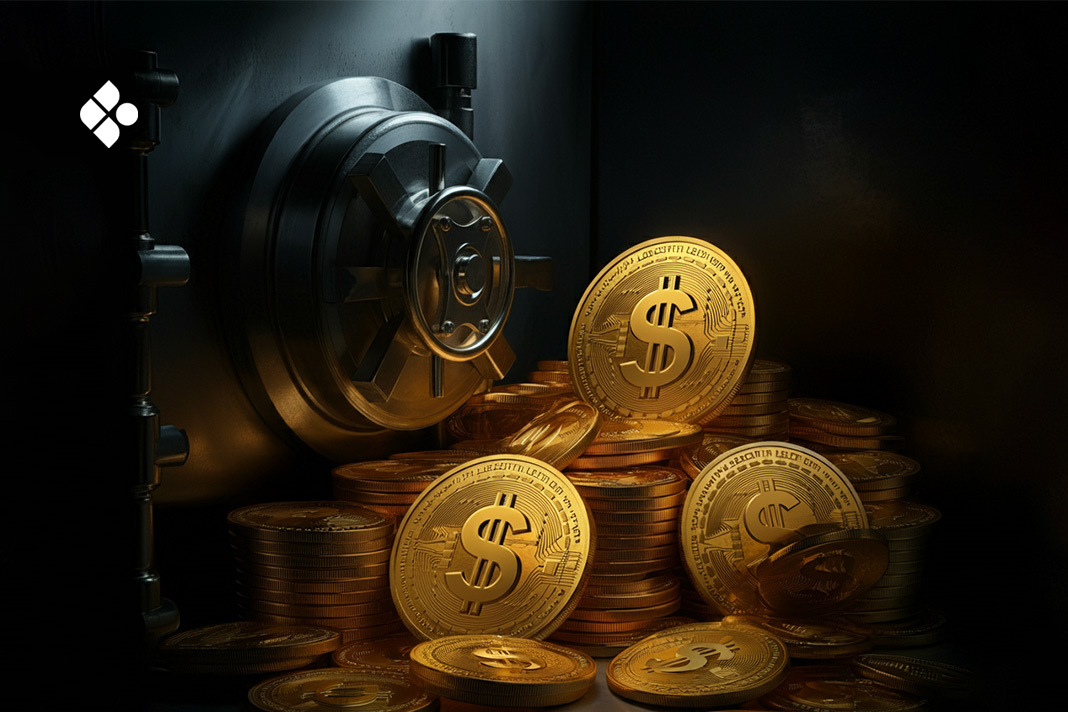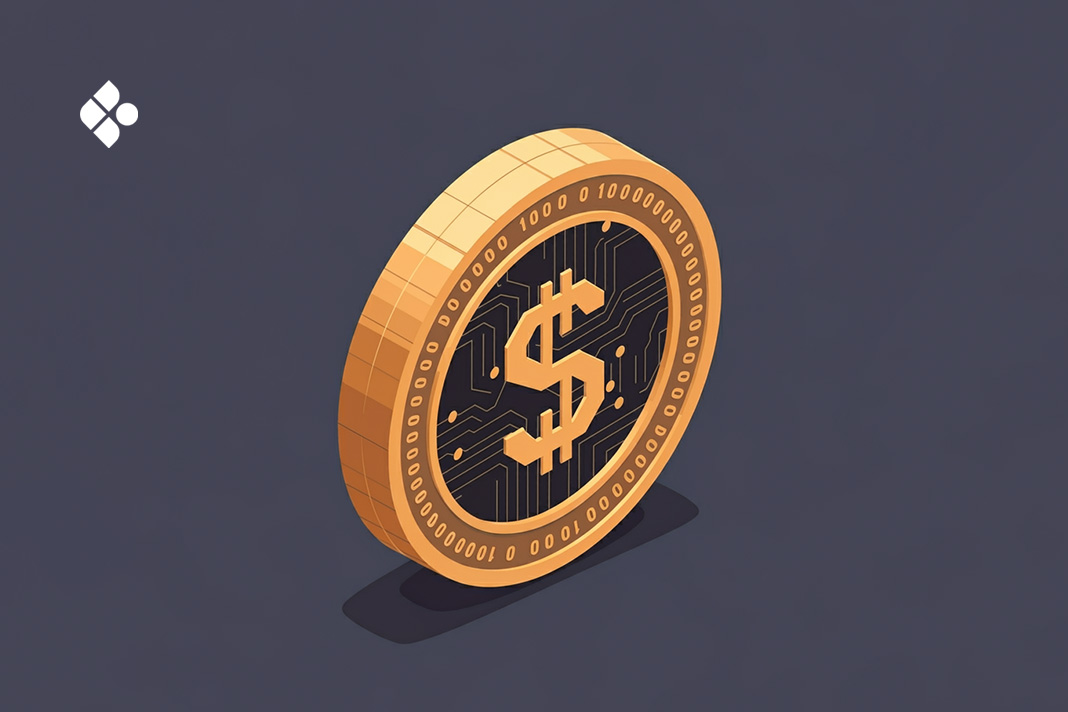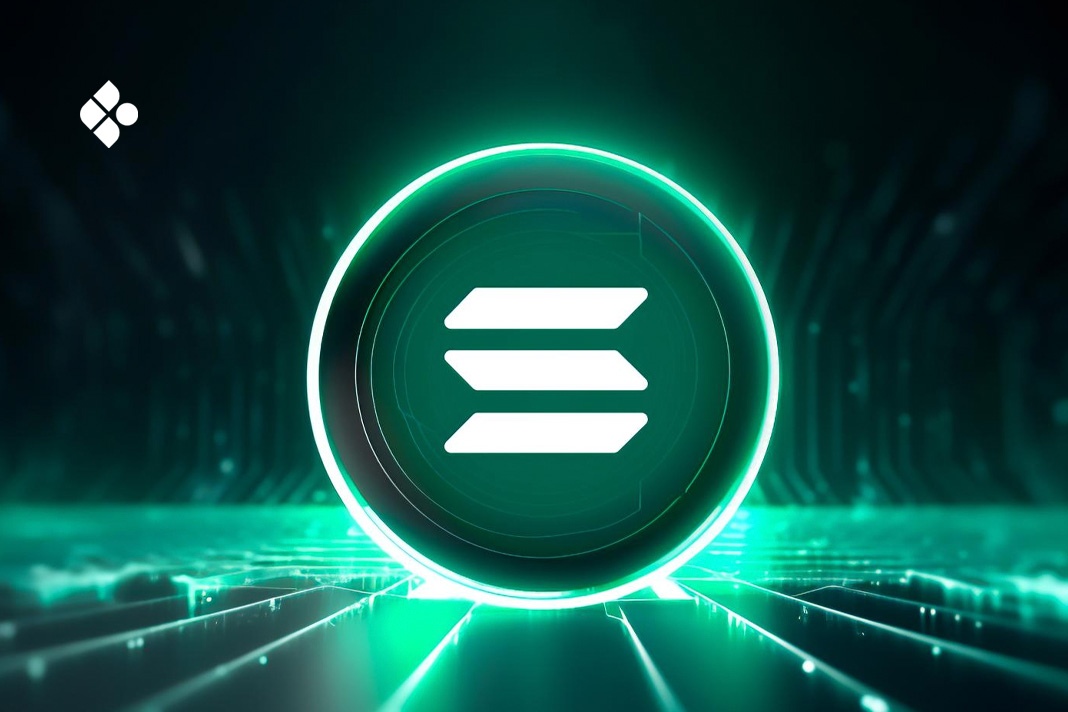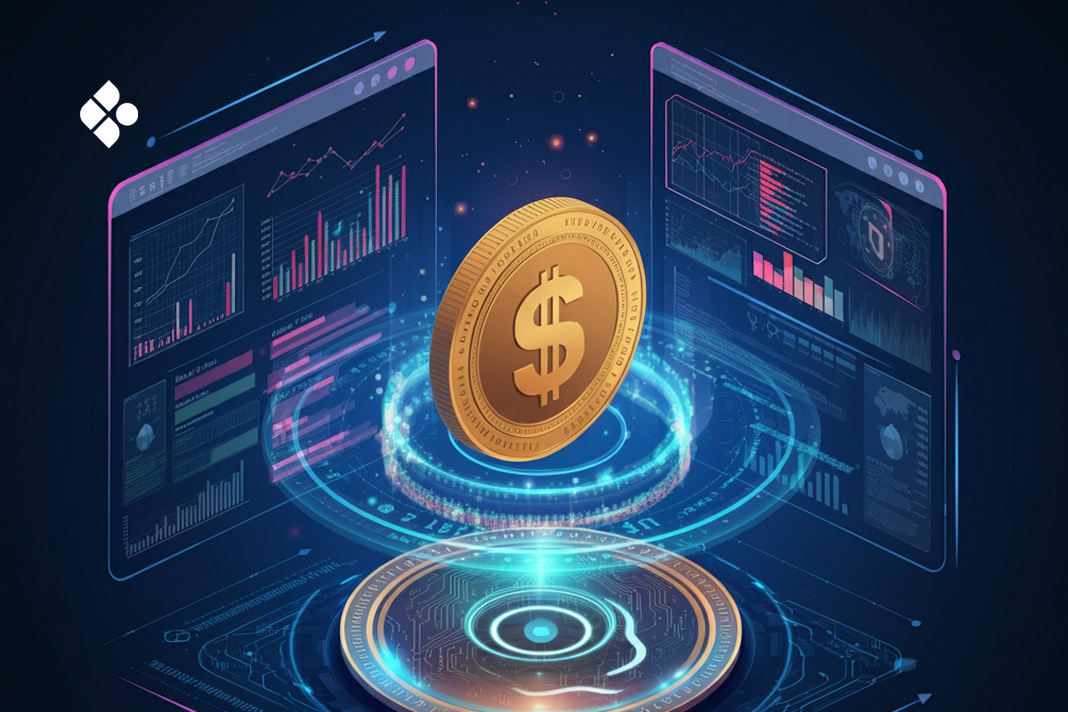Earning money with DeFi in Nigeria is becoming more than just a buzz—it’s a real opportunity for anyone looking to take control of their finances outside the traditional banking system. Imagine a world where you have complete control over your money with no bank dictating terms, no unnecessary fees from financial intermediaries, and no waiting days for transactions to clear. Instead, you could save, invest, and trade your money instantly without a bank standing in the way. That’s precisely what Decentralised Finance (DeFi) offers.
In this guide, we’ll break down how DeFi works, the best platforms to use, and how to manage risks effectively.
What is DeFi?
DeFi is a new digital ecosystem that uses blockchain technology and cryptocurrencies to provide financial services to users. Its dynamic approach of processing transactions automatically through smart contracts and self-executing agreements written with codes makes it different from traditional finance models.
How to Set Up a DeFi Wallet in Nigeria
Before using DeFi platforms, you must have a crypto wallet to store, save, and receive cryptocurrency. It is your digital account, just like your conventional bank account. Follow these steps to set up your DeFi wallet in Nigeria.
Step 1: Choose a DeFi Wallet
To use DeFi, you need a hot, non-custodial wallet—not a cold wallet. Cold wallets are for long-term storage and don’t support active DeFi use.
Hot wallets let you connect to DeFi apps and control your own private keys.
Popular options: MetaMask (Ethereum & EVM chains), Trust Wallet (Multi-chain), Phantom Wallet (Solana).
Step 2: Download and Install the Wallet
After choosing an appropriate wallet, you can download the official version from the Google Play Store, Apple App Store, or the wallet’s official website.
Double-check the developer’s information before using a wallet to prevent downloading a fake wallet.
Step 3: Create and Secure Your Wallet
- Open the wallet app and select “Create New Wallet”.
- You will receive a 12—to 24-word recovery phrase (seed phrase). This phrase is the only method for regaining access to your wallet if your phone gets lost or you forget your password.
- Keep your recovery phrase written in a secure offline storage place. To avoid hacking risks, do not take screenshots or store them on your mobile device.
Step 4: Fund Your Wallet
A DeFi system requires users to add cryptocurrency funds to their digital wallet. You can do this by:
- Purchasing crypto from an exchange like Binance and transferring it to your wallet.
- By buying crypto from independent sellers using peer-to-peer (P2P) trading
- Receiving crypto from another wallet (if you already possess some crypto asset).
Step 5: Connect Your Wallet to a DeFi Platform
With your now-funded wallet, you can link to DeFi platforms, including Uniswap, PancakeSwap, and Aave, to begin trading and using lending or staking services.
- Open your DeFi platform in your browser.
- Click “Connect Wallet” and select the type of wallet from options such as MetaMask or Trust Wallet.
- Confirm the wallet connection; here you go; you’re ready to use DeFi services.
Your wallet setup is complete, and you can start exploring DeFi opportunities in Nigeria.
Ways to Earn Money with DeFi
DeFi allows users to lend, stake, farm yields, and offer liquidity while receiving rewards. Each approach has benefits, risks, and earnings potentials. Below are the four most important ways to generate money using DeFi:
1. DeFi Lending: Earn Interest Like a Bank
DeFi lending is one of the most straightforward ways to earn passive income. Like a regular savings account, it allows you to lend your crypto to borrowers in exchange for excellent interest payments. It works when you deposit your cryptocurrency on a DeFi loan platform, and the borrowers obtain loans by providing collateral (often another cryptocurrency). You earn interest on your deposits, which are paid over time.
Interest rates in DeFi lending frequently range between 5% and 15% APY (Annual Percentage Yield), depending on the cryptocurrency and platform used. Two of the most popular and reliable lending platforms for Nigerians are Aave and Compound.
With Aave, users can participate as lenders or borrowers, with the lenders earning interest by supplying crypto assets to borrowers. Compound allows users to borrow multiple cryptocurrencies. Users can also earn accumulated interest from depositing their crypto in a compound platform over time. It’s a good way to earn a passive income if you’re looking at a low-risk investment.
Risks of DeFi Lending
While lending is relatively safe, some risks exist. The borrower may default, but most platforms require over-collateralization to protect lenders. Additionally, interest rates can fluctuate, impacting your earnings.
2. Staking: Earn Rewards for Locking Crypto
Staking enables users to lock their crypto assets in their wallets and earn interest over time. When users stake their crypto assets, they lend their holdings to the blockchain network to help maintain its security and operations by validating transactions. Depending on the blockchain and how long you stake, staking rewards usually range from 4% to 12% APY. Some of the best staking platforms include Binance Staking, Ethereum 2.0, and Cardano (ADA).
Also read: How to stake Solana for passive income
Risks of Staking
Although there are few risks involved in staking, there are two main challenges. First, you cannot withdraw your money until the end of the staking period because it is locked for a predetermined time. Second, your rewards can become worthless if the token’s value drops.
3. Yield Farming: High Returns with Higher Risks
Yield farming, known as liquidity mining, is one of the most lucrative but complicated ways to earn money with DeFi. It is a high-risk investment technique that works when users deposit their digital assets into DeFi protocols to earn high rewards. These funds help traders or decentralised exchanges (DEXs) function smoothly while exchanging cryptocurrencies. Below are some of the best-yielding platforms in Nigeria:
- PancakeSwap – A Binance Smart Chain (BSC) platform with high farming rewards.
- Uniswap – A leading Ethereum-based DEX offering multiple liquidity farming opportunities.
- Curve Finance – A platform focused on stablecoin liquidity farming, reducing volatility risks.
Risks of Yield Farming
Yield farming offers high returns, but it comes with significant risks:
- Impermanent Loss – If the price of one token in a liquidity pair fluctuates too much, you could lose money compared to simply holding the token.
- Smart Contract Risks – Bugs in DeFi protocols can lead to hacks and fund losses.
- High Gas Fees – Some Ethereum-based platforms charge high transaction fees, reducing profits.
4. Providing Liquidity: Earn from Trading Fees
Liquidity providers (LPs) play a crucial role in decentralised exchanges (DEXs) by depositing pairs of tokens into liquidity pools. In return, they earn a percentage of trading fees whenever users swap between tokens, unlike lending, which offers fixed interest. Here are the steps in providing liquidity:
- You deposit equal amounts of two tokens into a liquidity pool on a DEX.
- Traders use the liquidity pool to swap between tokens.
- You earn a portion of the trading fees generated from the pool.
Most platforms charge traders a 0.2% to 0.3% fee per transaction, which is distributed among liquidity providers. Some of the best platforms include Uniswap, SushiSwap, and PancakeSwap.
Risks of Providing Liquidity
Liquidity provision carries risks, mainly due to impermanent loss. If one token in a liquidity pair rises or falls in price significantly, you may withdraw fewer tokens than you initially deposited. To reduce risk, many LPs provide liquidity to stablecoin pairs (USDT/USDC), which maintain price stability.
DeFi Risks and Security Tips
Decentralised Finance (DeFi) offers financial freedom but has significant risks that users must navigate carefully. Here are common risks you must watch out for:
- Market Volatility – Crypto prices can change suddenly, leading to potential losses.
- Smart Contract Bugs—A coding error in a DeFi platform can lead to security vulnerabilities for hackers.
- Scams & Rug Pulls – Some projects luring investors to participate may disappear with investors’ money.
- Impermanent Loss – Liquidity providers can face losses if their token values fluctuate dramatically.
Since DeFi operates without intermediaries, you must take responsibility for securing your funds and making informed investment decisions. Here are key steps to stay safe while participating in DeFi.
- Use reputable platforms like Aave, Uniswap, and Curve Finance.
- Diversify investments to spread risk.
- Avoid projects promising unrealistic returns.
- Use a hardware wallet to store large crypto holdings securely.
Security is critical in DeFi, so always do your research before investing.
Nigeria DeFi Regulations
While the Central Bank of Nigeria (CBN) has banned banks from processing crypto transactions due to the recent regulatory landscape by CBN, DeFi itself is not illegal. Here are ways to Use DeFi Despite Banking Restrictions:
- Use P2P Trading to Fund Your Wallet
Since banks cannot process crypto-related transactions, P2P trading platforms like Bybit and KuCoin allow users to buy and sell crypto directly from other individuals. You can fund your wallet by purchasing crypto with naira and using it for DeFi activities like staking, lending, or yield farming.
- Ensure Secure Access with a VPN (if necessary)
While P2P platforms are accessible, some users may prefer to enhance their privacy with a virtual private network (VPN). A VPN helps protect transactions and personal data, especially in cases where access to exchanges is restricted.
- Join Local DeFi Communities
Engaging with Nigerian crypto and DeFi communities on platforms like Telegram, Twitter, and Discord is essential for staying updated on market trends, security tips, and regulatory changes. These groups also offer guidance on navigating the evolving landscape of DeFi in Nigeria.
Frequently Asked Questions (FAQs): How To Earn Money With DeFi in Nigeria
How Do I Earn Money With DeFi As A Beginner?
There are several beginner-friendly ways to earn money with DeFi. You can explore Staking, as it involves putting away your crypto assets in a smart contract on a DeFi platform and collecting rewards on them. To make this less risky, you can stake stablecoins (because they’re not as volatile).
You can also deposit your crypto in a decentralised exchange (DEX) liquidity pool and earn fees from traders who would swap currencies. This is more profitable than staking but is much more risky as your assets’ value can fluctuate with market movements.
How Do I Become A DeFi Expert?
Before you become seasoned in DeFi, you must build a strong foundation by mastering the basics. So, the best way to start is by understanding fundamentals like blockchain, cryptography, and decentralised finance (DeFi) protocols. Then, you can move on to more specific domains such as liquidity pools, yield farming, lending, borrowing, and decentralised exchanges (DEXes).
It’s important to dive deep into the DeFi ecosystem, familiarise yourself with apps, keep close tabs on industry news, and connect with other DeFi enthusiasts in a community.
Is DeFi Legal in Nigeria?
There are no laws banning the use of DeFi platforms, although the Central Bank of Nigeria only prohibited commercial banks from authorising crypto transactions. Hence, Decentralized Financing isn’t illegal in Nigeria, but you cannot directly fund your DeFi activities through Nigerian banks.
Despite this prohibition, peer-to-peer (P2P) trading, crypto exchanges, and decentralised wallets can be used to fund your wallet. You can lend, stake, or trade afterwards by converting your Naira to crypto via Peer-to-peer platforms before using DeFi protocols.
What’s the Minimum Amount to Invest With And Earn Money with DeFi in Nigeria?
The minimum amount required to start with DeFi ranges from $10 (about 15,000 Naira) upwards. However, the platform and the type of investment determine the starting amount. For instance, if you want to stake or lend, it usually requires $10, while yield farming is generally higher, like about $50 to $100 or more, depending on the platform’s fee.
Is Investing in DeFi Safe?
No investment can be tagged 100% safe; the same goes for DeFi. Indeed, you can earn money with Defi; however, it also has significant risks despite; DeFi markets are highly volatile, so price fluctuations are common. Due to its heavy reliance on smart contracts, hackers may also exploit some loopholes in these contracts, which could lead to the theft of funds.
As a rule of thumb, research its vulnerabilities to be well-equipped for risk management when dealing with investments.
Final Thoughts
DeFi is changing how Nigerians invest, trade, and earn passive income. Whether you prefer lending, staking, yield farming, or liquidity mining, DeFi provides multiple ways to grow wealth without traditional banking limitations. You can build long-term financial success through DeFi by following safe investment strategies. Now is the time to explore this growing opportunity and take charge of your financial future.
If you found this helpful, check out more beginner-friendly and advanced crypto guides on the Breet Blog—your go-to for smart, safe crypto learning.
Conclusion
DeFi provides an exciting opportunity to earn passive income through various mechanisms. While it is important to remember that these ways of earning money with DeFi have pros and cons, they are excellent opportunities to participate in the decentralized finance revolution.
As DeFi continues to evolve, it will be fascinating to see how it transforms the financial industry, and we can only anticipate more possibilities for individuals to earn money in innovative ways.
As a final reminder, the information presented in this article is for educational and informational purposes only and should not be taken as financial advice. Doing your own research and assessing your risk tolerance before engaging in any investment or financial activity is important.







